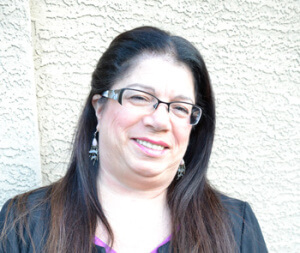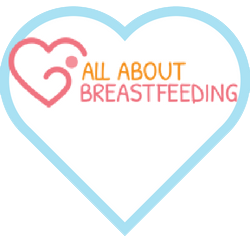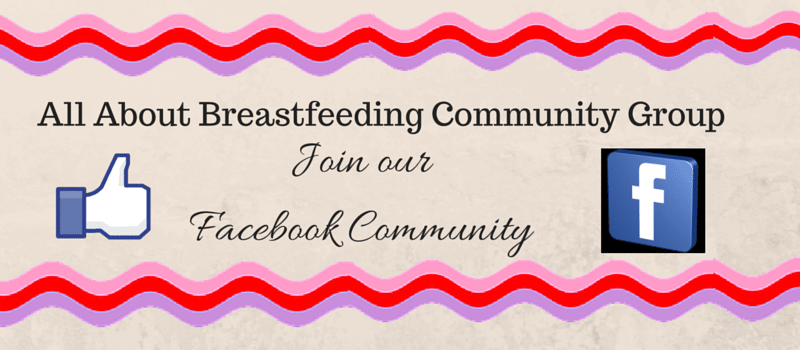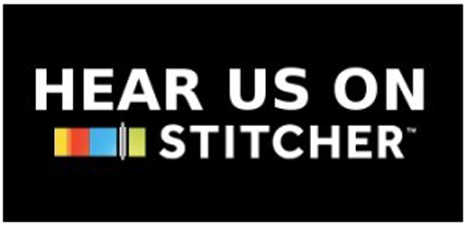Welcome back to the AAB Show. I would like to start today’s show by first letting you know that our topic of the day will be – 5 things to NOT do as a breastfeeding mother. Before I get into the main portion of the show, I would like to start of by thanking you for your continued support of the show by subscribing to the show and leaving reviews.
I am thrilled with the support you have shown for the AAB class, which is an online course that I have created to help all of you moms prepare for breastfeeding your baby. I am keeping good records of moms who are in the class and so far 95% of the mothers in the group are continuing to breastfeed and/or breastpump long enough to meet their goals. The moms in the class are feeling well supported by me and the other moms in the group. Not everything has gone as planned for all the moms. Some have had a birth outcome that was far from what they expected, which put breastfeeding in a whole new light and greatly affected their approach to breastfeeding. It has been wonderful for them to be in the class as I have been able to help them navigate the early breastfeeding, pivot where they needed to and reassess goals when necessary. I wish I could give you more specific info on all this, but my students privacy is important to me. Having a premature or sick baby can cause complications on both babies and moms part – all of this frequently leads to moms giving up, particularly when moms get inconsistent advice and poor breastfeeding management. Or they just lack the day to day support so many of us need to get through the other side. I am proud of the moms in my breastfeeding class and very happy to be able to provide what I call, the trifecta of breastfeeding support – An excellent breastfeeding class, along with day to day support from other breastfeeding moms in the class, as well as weekly Q & A’s where moms can ask me directly all of their breastfeeding questions.
The mixture of mothers in the group is just absolutely wonderful for me to see. I have quite a few pregnant moms and this is their first pregnancy. They have listened to the show and heard all of these moms that I have interviewed and one of the things that has resonated with most of them is hearing the moms say that if there was one thing, just one thing, they would do differently, it would be to not just assume that breastfeeding would just happen. The notion of breastfeeding is a natural thing to do so that it will just come naturally, is actually quite common. Their is an inherent danger in this kind of thinking because this may mean you are not planning, not preparing for breastfeeding. You may not be making any connections with resources just in case you have some early struggles with breastfeeding. So, whether you are a first time mom or have breastfed before and need a refresher or just a really good breastfeeding class, please go to: aabreastfeeding.com/breastfeedingclass to find out how you can join us.
Top 5 things to NOT do as a breastfeeding mother
As I started making this list, it felt like it was such a negative. I mean what not to do. It sounds like you are children and I am reprimanding you. So, I was than going to put a positive spin on it and than I thought… no.. that is ridiculous. As many of you know, I am a straight shooter and tell it like it is. I hate when people beat around the bush with me or when they sugar coat something that I need to really know the truth about. If the truth is going to make me unhappy or sad or angry, so be it. If I need to know something so that I can make things better, then please tell me. I can put on my big girl panties and work through all the emotions and then get on with whatever it is, using the knowledge that I just gained. whether it makes me happy or not. Besides, as hard as it is, I still think the best consumer is an educated consumer.
My Just Lori episodes are often fueled by what I see in my day to day practice helping families with breastfeeding. My hope is that in giving you a birds eye view of what my daily life is like, that you can learn from these experiences. So hang out with me for a while as I invite you to be a fly on the wall and see what happens during some of my most recent private consultations with moms. As always, I never mention real names or dates or places. I might change the sex of the baby, the title and name of the partner and even change an office visit to a home visit. It is very unlikely that any of you would actually know who I am talking about anyway, but I want to go overboard to ensure everyone’s privacy.
Let me start of by saying that in my Top 5 things not to do as a breastfeeding mother:
We are first going to get into what is actually happening.
Then we will talk about my “why” you don’t want to do it,
and then we will talk about how to avoid doing whatever it is you shouldn’t be doing.
As a lactation consultant who has been doing this work for well over 20 years, I have found a pattern around the Holiday Season, a pattern that seems to plague many new breastfeeding mothers. They get busy with there to do list. Breastfeeding takes a lot of time, particularly in the first few months. If you should happen to have given birth anytime before and during the holiday season, Breastfeeding can sometimes take a bit of a back seat, without you even realizing it, and when this happens, problems arise.
My # 1 what not to do: Don’t let an unusually long time go between milk removals. While TV and the movies and textbooks and even healthcare providers might make you believe that babies put themselves on an every 3 hour feeding schedule, it is the rare baby that breastfeeds exactly every 2 hours of every 3 hours around the clock. They space some feedings out longer and some shorter. However, usually within a 2-4 hour period, most newborns are having a breastfeeding.
The percentage of moms who suffer with breast engorgement, clogged ducts and breast infections seems to rise during the holiday season. When I was an intern, I remember noting this and saying to my mentor: Am I crazy or does it feel like every other call we get is with a mom who has a breast infection or severe breast engorgement with lumps all the way to their armpits? With one of those sneaky “know it all” grins she said: expect these numbers to rise around Thanksgiving time and expect these numbers to drastically fall after the New Year. She knew, what I have come to learn.
Moms wait too long to feed their babies. They may be out shopping at the mall with their baby in a carriage. Their baby is being kept busy, being kept moving in the stroller and goes longer in between letting you know they are hungry. They seem to sleep longer and moms get good at rocking the stroller back and forth trying to keep their little ones quiet,,, just a bit longer. Before they know it, it is time to go home, – the baby should be fed, but he is quiet and everyone is tired, it is time to go home and they figure… he seems quiet enough… I will wait until we get home. Meanwhile, your baby really could have breastfed a good 2 hours ago, but they were held off by being rolled in a stroller or walked around in your baby carrier. You may have had another adult with you who takes care of the baby and you are not use to another set of hands and are actually quite happy that they are able to help hold your baby off for a while longer.
You get home and your breasts are very engorged and now your baby is frustrated trying to latch on to very heavy and engorged breasts. Do you know that when your engorgement is severe, that this can literally flatten your nipples. This is temporary, but it can make it difficult for your baby to achieve a good latch. Do you know that when engorgement is severe, it can cause the milk to get all backed up and not flow so easily. Between a flat nipple and a hard breast that the milk is not easily releasing, well, This next feeding can cause your baby to be quite fussy as he twists and turns at the breast trying to get that good latch and the milk flowing. A frustrated baby may give up or just not have the best feeding. All it takes is one long overdue feeding, that is a poor feeding and you can get a clogged duct. You then have to spend the next day or so, focusing on resolving your clogged duct.
Another very common scenario is a mom who leaves a bottle or two with her caregiver while she goes out shopping. She is usually gone much longer then she had planned. She is grateful that she has left extra milk and takes comfort that her baby is being well fed. But what happens to her breasts…. they have not adjusted to long times in between milk removal. By the time you get home, they are hard as rocks and your bra that usually fits well, is so tight that you have compression marks on your breast. Your baby is still sleeping as they had a bottle shortly before you got home. By the time your baby wakes up to feed, it is difficult for them to latch onto tissue that is so tight and this can make for a very uncomfortable feeding and possible clogged ducts if the engorgement is not quickly resolved.
So, you have created a situation that increases the risk factor for engorged breasts. You don’t want to do this because this increases the risk factor for clogged ducts. The solution: Think: milk removal.
The problem is: too long in between milk removals.
You want to avoid this: because it can cause a difficult next feeding and possible clogged ducts
You can prevent this by: using hand expression or a manual pump to remove the milk before you get too full
My #2 on what NOT to do: Do not make it easy to get a breast infectionAs much as I would love for you to avoid getting cracked and bleeding nipples, if you do wind up having cracked and bleeding nipples, avoid doing things to make it worse and get a breast infection.
Prevention is, as I said, optimal, however, once this happens, you might take a look at what you are doing to your nipples and what you are putting on your nipples as this can make things worse. One of the main issues is that when you have a crack in the nipple tissue, this is now an entry way for bacteria to come on in and make themselves at home, and to flourish. You may have some habits that make getting an infection extra easy
Using lanolin, which is an ointment made from wool. There is not much instruction given to breastfeeding moms about the use of lanolin and since free samples are given to moms so often, there is this notion that it is totally safe and good to use when your nipples are cracked and bleeding when in actuality it is really to be used for keeping the nipple tissue from becoming too dry and not the best product for healing cracked and bleeding nipples. – I am not going to say that all moms have a negative response to lanolin, however, what I do notice is that this is a very thick ointment which moms tend to be pretty heavy handed with. Slathering this ointment on results in a very thick layer of lanolin on the cracked nipple tissue making it difficult for air to circulate and for the tissue to breathe. This can contribute to a breast infection. I have also seen my fair share of mothers having allergic reactions to the lanolin. the very thing they are counting on to heal their delicate nipple tissue is causing their skin to become dry, red, flaky, irritated. When a severe reaction happens this results in swollen, itchy tissue that begins to crack. The exact opposite of what you are wanting to see happen.
So, you have created a situation that increases the risk factor for you getting a breast infection.
The problem is: you don’t want to put the wrong ointment or cream on your nipples
You want to avoid this: because it can cause other skin conditions
You can prevent this by: trying creams on different tissue before placing it on your nipple.
Which leads me to my #3 on my what NOT to do list: Do not use both gel pads and lanolin or other nipple cream at the same time. And put your fingers away!
Moms are also using gel pads to protect their nipples from their clothing and to help heal their nipples. Gel pads provide cooling relief to soothe and help heal sore nipples. I call it the “aaaah” factor. I think gel pads are great. The problem is when moms use lanolin or other nipples creams and then put on the gel pads. The creams and lotions can ruin the gel pad and they will not allow your tissue to breathe and the gel pads can’t do the job for which they were intended to do. I also see moms using the gel pads way beyond their due date. I have seen some pretty disgusting gel pads being used one too many days in a row. If your nipple is actively bleeding vs. being sore or chafed, the lifetime of your gel pad is much less. They will need to be replaced sooner than if you have healthy nipple tissue that is just sore.
Yes, you did hear me say, put your fingers away: When I am with a mom and I see her taking her the tip of her ring finger and touching her nipples to show me where the cracks are or to show me where it hurts, go digging looking for the crack or to pull of a little scab or a little fuzzy usually from the babies clothing, I quickly, but politely say: please don’t touch your nipples with your finger. Usually by this time, they have touched other things, that have touched other things. Like moms put their nursing pad or gel pad on a counter or a dresser or on top of their babies blanket or the arm of their nursing chair or on the breastfeeding pillow. All these objects can be dirty and then you are touching your nipple with your finger that have touched another dirty object or that you have just rubbed your eyes with or put in your mouth and now you are transferring goodness knows what when you touch your cracked nipple with your dirty finger.
Poor nipple treatment can cause a situation that increases the risk factor for getting a breast infection.
The problem is: you are doing things to harm you nipples
You want to avoid this: because it can increase your risk factor for a breast infection
You can prevent this by: alternating treatments such as gel pads during the day and ointment at night and as far as your finger goes, be sure your hands are freshly washed and don’t go digging.
#4 -What NOT to do as a breastfeeding mother – think that you are the only one who can do everything for your baby.
I definitely fell into this trap with my first baby. I had to do everything, all the time, all by myself. I did not have the words to put to why I needed to do this at the time. I have since learned what my major issue was and I have found from talking to thousands of mothers over the years, that they are afflicted with the same disease that I had. We can turn this conversation inside out and upside down, however, the basic cause of this disease called “Only I can do everything for her” is the feeling of – what will people think? That I can’t take care of my baby? That I am a bad mother? The absolute very last thing any new mother wants to think is that others are talking about her not being a good mother!
So, we start off motherhood already sleep deprived – Pregnancy has a way of doing that to you. Than we go through the birth and that first 24 hours where some of us are on cloud 9 and running on adrenaline only. Quite exhausted, we then head into the second day and night of our newborns life in which they tend to have really woken up and make their presence known. Which is code word for: They are breastfeeding very, very frequently. As postpartum mothers, we have a lot of health issues goes on as our uterus is contracting working on gradually getting back to pre-pregnancy size, our breasts are putting out milk for our babies, we are spending a good 8-10 hours feeding our babies. They need frequent diaper changes, burping, rocking, soothing, clothing changes. If we are the only one doing all of this work, which easily takes about 12 hour or more a day, when are we eating, hydrated, sleeping and taking care of personal needs. Oh no….. as my son use to say: I do it myself! If you have also decided that you can take care of all household chores during the early postpartum days, this compounds the issue. If this is your grand plan – to not let anyone do barely anything else, then I promise you, you will crash and burn pretty quickly.
So, you have created a situation that can make the normal baby blues last longer, that can increase the risk factor for posptartum depression as sleep deprivation is on the list of things that contribute to ppd. Your endless need to do it all may cause you to resent others in your household, make you angry at yourself, cause you to not eat well or keep yourself well hydrated.
The problem is: you have what I call: “Only I can do everything for my baby disease.
You want to avoid this: by knowing about it ahead of time and thinking if you are likely to succumb to this.
You can prevent this by: preparing ahead of time to accept help. Have you ever been so tired that you literally cannot think straight? Assume ahead of time that every day you will feel like this for weeks on end. Push yourself to Make a list of who your helpers can be. Make a list of other household chores that others can do. Setting aside some money to pay for grocery delivery, a few take out meals, a house cleaner, a postpartum doula.
My last tip #5 of what NOT to do when you are a breastfeeding mother: Don’t spend money on too much stuff that you don’t even know what you will need and won’t get around to returning.
Remember one of the tips I just suggested which involved some financial investment. Well, I cannot tell you how many mothers will tell me that they cannot afford take out meals or food delivery or a house cleaner or a postpartum doula. All of these practical items can literally be life savings and help you get through the first 6 weeks with an intact mind and body. I call that life saving. But what do moms who say they don’t have the money for these things do…. they spend it on 3 or 4 nursing bras, before they even know if this bra is one that works for them. They will buy nursing clothes and pajamas and not just one container of nipple cream but several, along with a big tubes of lansinoh and even some nipple shields.
I use to see just one nursing pillow in homes and now I often see at least 2. When I ask moms why they say, they couldn’t decided which one was best so they bought 2. I can appreciate this thinking. I can also appreciate wanting to get all the bras and clothing ahead of time as who wants to be out pp buying all this stuff. Moms have electric pumps and manual pumps and all different size flanges. 4 nursing bras at $40.00 each equals $160.00 and that could pay for quite a few nights of take out. Having an extra breastfeeding pillow that you don’t need, might pay for a few meal deliveries. In this scenario, I am talking about moms who are on a budget and trying to do the right thing, buy getting everything set up ahead of time. What I am suggesting is that perhaps they might want to hold onto their money for services that might help them get through the pp period, rather than put their money towards items that they may never need.
I am also strongly suggesting that you remember that in order to do the best job in taking care of your baby, you need to take care of yourself. Sometimes it is hard for mothers to see this. They are so exhausted doing everything for their baby, thinking they are doing the best for their baby, but they need to remember, if you are not reserving your strength and putting yourself up high on the list as you put your baby, you will soon feel pretty crummy. All your helpers will have moved on with their lives and you will be left alone.
So, you have created a situation that has you spending your hard earned savings on things you might never need.
The problem is: that you now don’t have money for the things that you really need.
You want to avoid this: what good is having all of these items in your house if you are so sleep deprived that you cannot function too well and this affects your ability to feed your baby as frequently as they need to?
You can prevent this by: making a list of all the non-essential items that you think you might want and when you are pp and realize that you do need and want these items, you can send someone to get them or order it online.
I started of this show by sharing a concern that perhaps the topic of _ 5 things that the breastfeeding mother should NOT do, was quite the negative topic. As I began to list the What NOT to do’s, I began having a different viewpoint. I swear I am not just putting a positive spin on this. I really did realize, that by sharing with you some of the most common things I see moms do, that makes breastfeeding more difficult for them, that I am truly doing you a service. If you learn what not to do and why you should not do it, than perhaps I can save you from creating breastfeeding challenges that you don’t need. Positively speaking, I am helping you avoid problems by enlightening you as to the most common mistakes moms make. You learn what not to do and this is how I help you have a better breastfeeding experience. Hey, I am a mother! I have learned the art and science of putting a positive spin on all things negative!
Your Online Breastfeeding Class
Learn how to breastfeed – Be comfortable. Be confident.
The learning continues well beyond the average breastfeeding basics class that is 60-90 minutes. In this class, we have over 15 hours of audio lessons, combined with many hours of videos to help support what you are learning. We cover breastfeeding and medication safety, what to do if your baby does not latch on, common breastfeeding challenges, tongue tie, premature babies, building a good supply, returning to work and pumping. Take a look at the list below and follow the link to the class page so you can see more specifics of what is covered. I want to ensure that we got you covered and that you have great support well beyond the newborn days.
- Using your pregnancy time to prepare for breastfeeding
- Tips on how to prepare your home for a newborn
- Specific details about the first 24 hours after birth.
- Exactly what to expect the first two weeks after birth
- What can you do if your baby is not latching on
- Common and not so common breastfeeding challenges
- What you can expect over the next few months
- Returning to work as a breastfeeding/pumping mom
- Pumping and storing your milk
- When to begin pumping and building your freezer stash
- How to make a smooth transition to postpartum life
- Lessons dedicated to partners and breastfeeding knowledge.
- Breastfeeding and the 1 year old
- Breastfeeding the toddler and beyond
- Tandem nursing
- Breastfeeding through a pregnancy
- Medication and mother’s milk
- Weaning
Once you register for the class, you have immediate access to:
- Audio Lessons
- Videos
- Educational handouts
- Helpful checklists
- Our “members only” group
- Weekly group LIVE Q&A sessions
Gain confidence in breastfeeding.
Expert advice from Lori J. Isenstadt, IBCLC who has over 25 years of experience in maternal health and lactation. I will help you navigate the ins and outs of breastfeeding.
Listen anywhere and anytime. Imagine not having to sit in a classroom or stare at a screen. You can learn all about breastfeeding while going for a walk, driving to work or running errands, traveling on a plane, train or bus. Because you can download the audios, learning is easy and convenient. Get ready to learn anytime whenever it’s convenient for you and your partner. You can be cooking dinner together and listening to the class. Perhaps relaxing together in the evening in your comfy clothes. You can learn together. Easy access to all class materials. Your class never expires. You’ll be able to listen and download the materials at your convenience.
You are not alone!
Once you are a student in the breastfeeding class, you have regular access to ongoing support for the whole time you are breastfeeding. You can have your questions answered by Lori J. Isenstadt, IBCLC, in our private group as well as our weekly live Q & A sessions. Just check out the Bonuses below to see how I provide you with ongoing support..
Exclusive Bonus #1
Immediate access to a private group for class students only. I will be answering your questions 5 days a week.
Exclusive Bonus #2
Invitation to join our weekly Q & A session with Lori and other students.
Exclusive Bonus #3
Need additional help? *25% discount off a private consult – for students only.
*If you are in the Phoenix metro area. use this link to schedule your Office or Home lactation consult.
*If you are out of the area, use this link to schedule a Skype call
Do you have a question about the class before you purchase? Send it to – aabreastfeeding@hotmail.com
 Register for the Breastfeeding class
Register for the Breastfeeding class
http://www.aabreastfeeding.com/audioclass
Additional ways to connect with me:
Like us on Facebook HERE:
http://bit.ly/2dNPlsC
Follow us on Twitter HERE:
@breastfeedingaz
http://bit.ly/2BfEIJ2
Follow us on Pinterest HERE:
https://www.pinterest.com/lorijisenstadt
Subscribe on iTunes the All About Breastfeeding show HERE:
https://apple.co/2FJGwsV
Lori J. Isenstadt, IBCLC
 Lori Jill Isenstadt, IBCLC is a huge breastfeeding supporter. She has spent much of her adult life working in the maternal health field. Once she became turned on to birth and became a childbirth educator, there was no stopping her love of working with families during their childbearing years. Lori became a Birth doula and a Postpartum doula and soon became a lactation consultant. She has been helping moms and babies with breastfeeding for over 25 years. Lori founded her private practice, All About Breastfeeding where she meets with moms one on one to help solve their breastfeeding challenges. She is an international speaker, book author and the host of the popular itunes podcast, All About Breastfeeding, the place where the girls hang out. You can reach Lori by email at: aabreastfeeding@hotmail.com or contact her via her website: allaboutbreastfeeding.biz/contact
Lori Jill Isenstadt, IBCLC is a huge breastfeeding supporter. She has spent much of her adult life working in the maternal health field. Once she became turned on to birth and became a childbirth educator, there was no stopping her love of working with families during their childbearing years. Lori became a Birth doula and a Postpartum doula and soon became a lactation consultant. She has been helping moms and babies with breastfeeding for over 25 years. Lori founded her private practice, All About Breastfeeding where she meets with moms one on one to help solve their breastfeeding challenges. She is an international speaker, book author and the host of the popular itunes podcast, All About Breastfeeding, the place where the girls hang out. You can reach Lori by email at: aabreastfeeding@hotmail.com or contact her via her website: allaboutbreastfeeding.biz/contact
your email address will not be published






